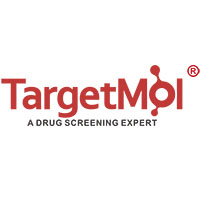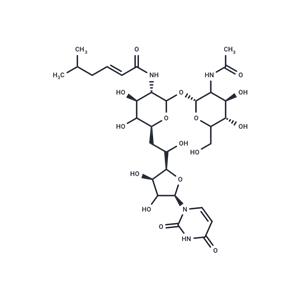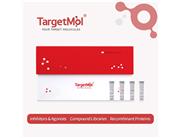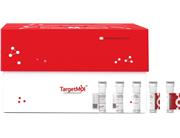| Name | Tunicamycin |
| Description | Tunicamycin is a mixture of antibiotics that inhibit N-linked glycosylation by blocking GlcNAc phosphotransferase (GPT). Tunicamycin has antitumor activity, as well as anti-bacterial, anti-fungal, and anti-viral activity. |
| In vitro | METHODS: Human hepatocellular carcinoma cells Hep3B were treated with Tunicamycin (1 μg/mL), camptothecin (3 μM), etoposide (5 μM), taxol (0.1 μM), and vincristine (0.1 μM) for 48 h, and cell death was detected by Flow Cytometry.
RESULTS: Tunicamycin significantly inhibited apoptosis induced by TOP inhibitors (camptothecin and etoposide) but not by microtubule-targeting drugs (taxol and vincristine). [1]
METHODS: Human hepatocellular carcinoma cells PLC/PRF/5, MHCC-97L and MHCC-97H were treated with Tunicamycin (2.5 μg/mL) for 24 h, and the expression levels of the target proteins were detected by Western Blot.
RESULTS: Tunicamycin inhibited the phosphorylation of Akt in the three hepatocellular carcinoma cell lines. [2] |
| In vivo | METHODS: To investigate the effects on hepatic energy metabolism, Tunicamycin (1 mg/kg) was administered intraperitoneally to C57BL/6 mice as a single injection.
RESULTS: Tunicamycin significantly induced hepatic yellow coloration and endoplasmic reticulum stress, and increased serum aspartate aminotransferase and alanine aminotransferase levels.Tunicamycin altered hepatic energy homeostasis by increasing triglyceride accumulation and decreasing glycogen content. [3]
METHODS: To test the antitumor activity in vivo, Tunicamycin (0.25 mg/kg) was administered orally twice a week for four weeks to Balb/c (nu/nu) mice harboring human triple-negative breast carcinoma tumor MDA-MB-231.
RESULTS: Within one week of oral administration of Tunicamycin, MDA-MB-231 tumor xenografts were reduced by 65% and there was no systemic and/or organ failure. [4] |
| Storage | store at low temperature | Powder: -20°C for 3 years | In solvent: -80°C for 1 year | Shipping with blue ice. |
| Solubility Information | DMSO : 14.37 mg/mL (20 mM), Sonication is recommended.
|
| Keywords | N-linked | DNA | UDP-HexNAc | inhibit | anti-cancer | Inhibitor | ATF6 | synthesis | Tunicamycin | Influenza Virus | invasion | XBP-1 | Bacterial | Fungal | glycoprotein | Antibiotic |
| Inhibitors Related | Neomycin sulfate | Dimethyl sulfoxide |

 United States
United States



